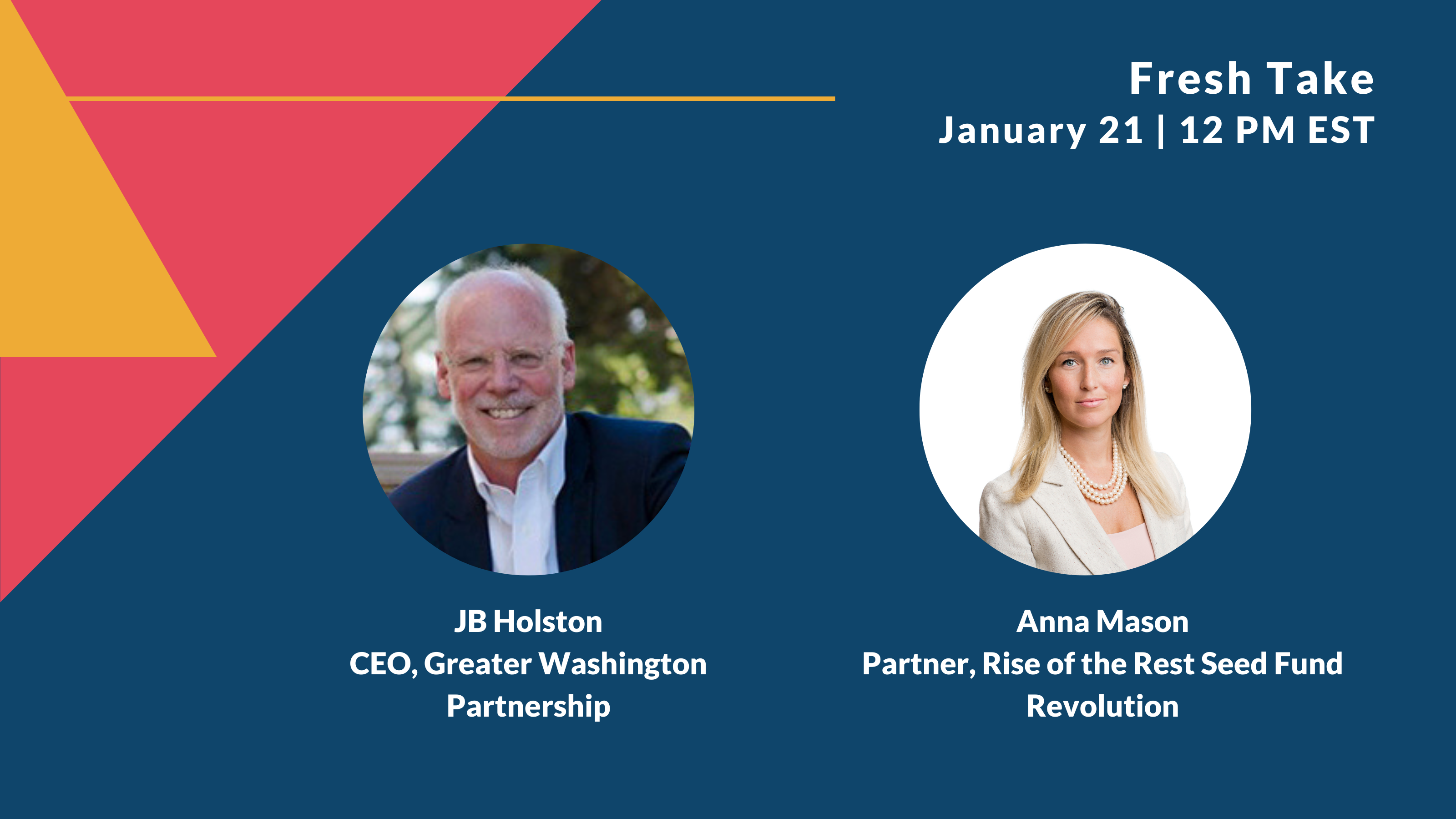Happy Inauguration Day from battened-down DC!
Here at the Partnership, we are encouraged by the Biden Administration’s introduction of their new Science team last week, and by the elevation of the Chief Science Advisor to a Cabinet position. These moves will help recover some of America’s waning international competitiveness. The new Science advisor has, among other things, overseen the Broad Institute – which you’ll recall has been masterful attacking the national COVID testing shortage when no one else would address it. I highly recommend that you take the time to listen to the comments by all the new science team – they were remarkable, and the incoming President and Vice President’s enthusiasm was palpable. I also recommend that you read the instructions President-Elect Biden has laid out for this team, as it speaks to national science priorities in the coming years.
We feel that there’s one essential ingredient still missing– someone who can play the central role in driving technology-based innovation and entrepreneurship for the country.
Obama tasked the nation’s Chief Technology Officer with this role, and the incoming administration may do the same. We were thrilled to talk at length last week with Megan Smith, the nation’s third CTO (and first woman and engineer in the role), who served in that capacity under President Obama. You’ll get a great understanding from that interview as to the critical role that leadership can provide in catalyzing and connecting innovation ecosystems and networks.
Innovation ecosystems flourish from both the treetops and the grassroots. My home state – Colorado – has been a great example of this, with an astonishing bloom around tech innovation and entrepreneurship from the ground-up coupled with critical ‘network node’ bi-partisan leadership. The state’s newest Senator, John Hickenlooper, played a significant role in this effort while he served as Mayor of Denver and then Governor of Colorado for two terms each. But the innovation ecosystem flourished – and became central to Colorado’s ability to attract talent – as much due to the widely distributed, pay-it-forward culture of collaboration that blossomed in parallel. Brad Feld’s seminal work on innovation ecosystems is a great way to understand these phenomena.
Another critical force for the acceleration of tech innovation ecosystems around the country has been Steve Case (founder of AOL, Chairman & CEO of Revolution) and in particular the Rise of the Rest initiative to promote, support, and invest in startup ecosystems outside of the traditional hot spots around the country. Tune in on Thursday this week (Jan 21), as I’m thrilled to be interviewing Anna Mason, one of Steve’s partners in Revolution’s Rise of the Rest Seed Fund and the lead on strategy and execution for the Rise of the Rest Network and Platform, including the Rise of the Rest Road Trip and their annual Network Summit.
Anna and I will talk specifically about inclusive innovation ecosystems. We believe that inclusion is the new innovation and that the region that successfully builds the most inclusive growth economy will be the most attractive economy for talent in the years ahead – because it’s providing the most equitable growth opportunities. This is particularly true with the sustained rise in remote work. Folks will live and work from the place that meets their values best (and of course have wonderful cultural, outdoor, education, and transportation infrastructure and opportunities, too). When I spoke with Steve earlier this month, we shared our excitement about this too and agreed that the Capital Region is uniquely positioned to deliver on this promise. The Partnership’s efforts around Inclusive Growth are well underway – and there’s much more to do.
America’s entrepreneurial ecosystem has been devastated by COVID – we need to get it back on track ASAP and build it back around inclusion.
Growing and supporting inclusive innovation and entrepreneurship is the critical path toward enduring equitable job creation. I’m looking forward to talking with Anna about lessons learned in their efforts around the country, and how best we can capitalize on those here.
